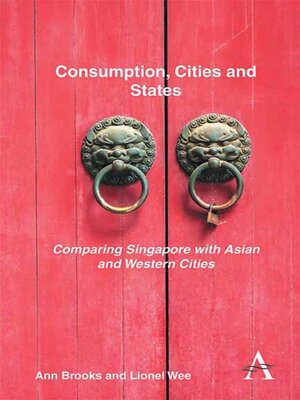Consumption, Cities and States
ebook ∣ Comparing Singapore with Asian and Western Cities · Key Issues In Modern Sociology
By Ann Brooks

Sign up to save your library
With an OverDrive account, you can save your favorite libraries for at-a-glance information about availability. Find out more about OverDrive accounts.
Find this title in Libby, the library reading app by OverDrive.



Search for a digital library with this title
Title found at these libraries:
| Library Name | Distance |
|---|---|
| Loading... |
'Consumption, Cities and States' examines the fascinating intersection of consumption, citizenship and the state in a cross-section of global cities in Asia and the West. It focuses on a number of theoretical and empirical analyses: developing and amplifying the intersection of consumption, citizenship and the state in late modernity in relation to a range of cities; examining the concept of the global city as an 'aspirational' category for cities in Asia and the West; and considering case studies which highlight the intersection of consumption and the state. As Ann Brooks and Lionel Wee demonstrate, the interface between citizen status and consumer activity proves a crucial point of analysis in the light of the neoliberal assertion that individuals and institutions perform at their best within a free market economy.
|In 'Consumption, Cities and States: Comparing Singapore with Asian and Western Cities', Ann Brooks and Lionel Wee focus on the interrelationship of consumption, citizenship and the state in the context of globalization, calling for greater emphasis to be placed on the citizen as consumer. While it is widely recognized that citizenship is increasingly defined by 'gradations of esteem', where different kinds of rights and responsibilities accrue to different categories and subcategories of 'citizens', not enough analytical focus has been given to how the status of being a citizen impacts the individual's consumption. The interface between citizen status and consumer activity is a crucial point of analysis in light of the neoliberal assertion that individuals and institutions perform at their best within a free market economy, and because of the state's expectations regarding citizens' rights and responsibilities as consumers not just as producers. In this remarkable comparative study, the authors examine these relationships across a number of cities in both Asia and the West.







